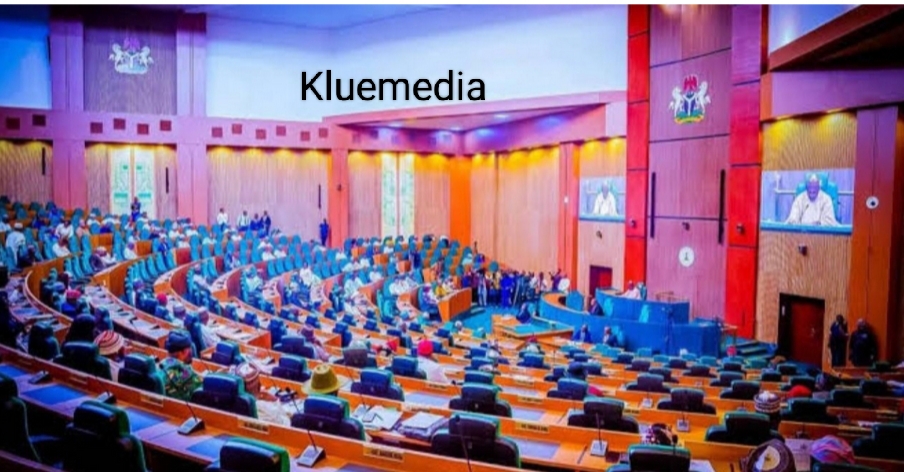
Abuja, Nigeria – The House of Representatives has significantly altered President Bola Tinubu’s tax reform bills, making major modifications to key provisions originally proposed by the executive.
During a plenary session, Rep. James Abiodun Faleke, Chairman of the House Committee on Finance, presented a detailed report outlining the changes made to the bills after extensive stakeholder engagement and a three-day public hearing.
Key Changes to the Tax Reform Bills
The bills under review include:
- Revenue Collection and Assessment Bill (HB.1756) – Aimed at restructuring the tax collection process across federal, state, and local governments.
- Nigeria Revenue Service Bill (HB.1757) – Repeals the Federal Inland Revenue Service Act to establish a new Nigeria Revenue Service.
- Joint Revenue Board and Tax Appeal Tribunal Bill (HB.1758) – Seeks to streamline tax adjudication and oversight.
- Nigeria Tax Act Consolidation Bill (HB.1759) – Aims to merge existing tax laws under a single framework.
Among the most contentious proposals was the planned increase in Value Added Tax (VAT) from 7.5% to 10% by December 2025, 12.5% by 2026, and 15% by 2030. However, the committee has recommended retaining the current 7.5% VAT rate, citing economic concerns and public opposition.
Similarly, the proposed inheritance tax has been modified. Instead of taxing inherited estates outright, only those who invest inherited wealth in income-generating ventures will be subject to taxation.
Concerns Over Agency Scrapping and Revenue Distribution
Fears that the reform would eliminate key government agencies—including the Tertiary Education Trust Fund (TETFUND), National Information Technology Development Agency (NITDA), and National Agency for Science and Engineering Infrastructure (NASENI)—have been addressed. The committee removed provisions that would have phased out these agencies by 2030 and instead recommended their continued funding, while adding new beneficiaries to the 4% development levy fund.
The revised distribution of the levy fund now allocates:
- TETFUND – 50%
- Nigerian Education Loan Fund – 3%
- NITDA – 5%
- NASENI – 10%
Other Key Modifications
- Tax Identification Numbers (TIN) – The bill initially required tax authorities to issue TINs within two working days of application. The committee extended this to five days, requiring authorities to provide reasons for refusals.
- Electronic Fiscal System (EFS) – The mandate for a government-prescribed digital tax system has been relaxed. The committee now recommends a gradual transition plan.
- Corporate Taxation – The initial proposal reduced the corporate tax rate from 27.5% in 2025 to 25% in 2026. The revised version raises the general corporate tax rate to 30%, except for companies in priority sectors, which will pay 25%.
Lingering Concerns and Opposition
Despite the revisions, concerns remain, especially among lawmakers from Northern Nigeria, where governors and legislators had earlier opposed several provisions in the original bills. Although behind-the-scenes negotiations led to a consensus that allowed the public hearings to proceed, some lawmakers remain skeptical, fearing last-minute amendments when the Senate conducts its review.
Beyond the National Assembly, civil society groups have raised alarm over certain provisions that they believe could give the federal government excessive powers.
A report by the Centre for Democratic Development Research and Training (CEDDERT) flagged concerns, including:
- Unilateral Presidential Exemptions (Section 75) – Grants the President the power to exempt companies from taxation at will. Critics fear this could lead to favoritism and corruption.
- Asset Seizures Without Court Approval (Section 60) – Allows tax authorities to confiscate properties deemed to have outstanding tax liabilities, with the power to sell such assets within 14 days.
- Tax Investigations Based on ‘Lifestyle’ (Section 63) – Empowers tax authorities to investigate individuals based on their perceived standard of living, raising concerns over abuse and political persecution.
CEDDERT warned that such provisions could be used to target political opponents, referencing past attempts to weaponize tax laws against figures like Dr. Nnamdi Azikiwe and Mallam Aminu Kano.
What Next?
As the House of Representatives prepares for a clause-by-clause consideration of the bills on Thursday, all eyes are on the Senate to see whether it will retain or further modify the contentious provisions.
With critics arguing that aspects of the bills pose threats to democracy, economic fairness, and Nigeria’s federal structure, the final version of the tax reforms will determine whether the government’s push for increased revenue collection aligns with public interest and constitutional safeguards.

